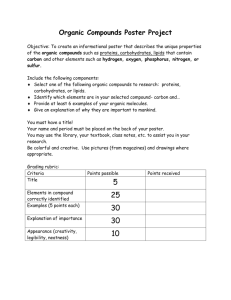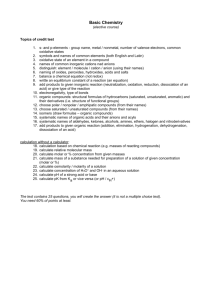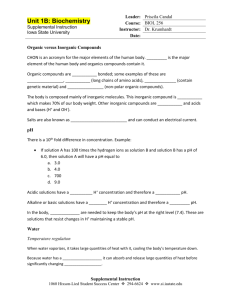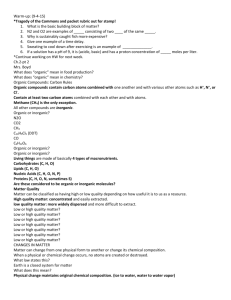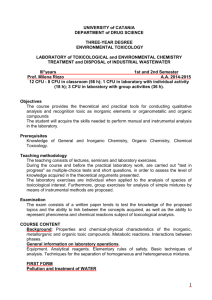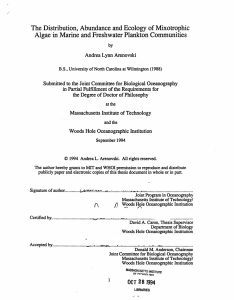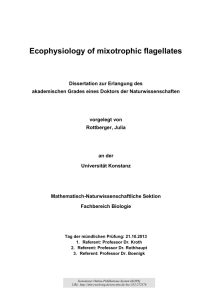Nutritional Flexibility of Mixotrophic Dinoflagellates in Lower
advertisement
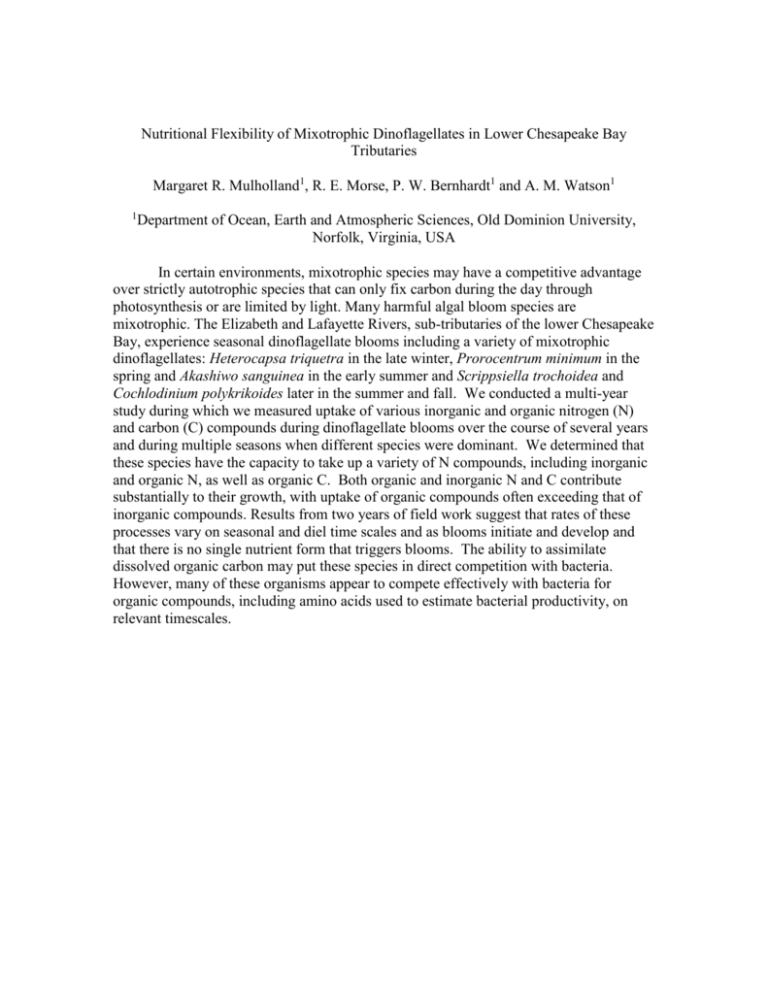
Nutritional Flexibility of Mixotrophic Dinoflagellates in Lower Chesapeake Bay Tributaries Margaret R. Mulholland1, R. E. Morse, P. W. Bernhardt1 and A. M. Watson1 1 Department of Ocean, Earth and Atmospheric Sciences, Old Dominion University, Norfolk, Virginia, USA In certain environments, mixotrophic species may have a competitive advantage over strictly autotrophic species that can only fix carbon during the day through photosynthesis or are limited by light. Many harmful algal bloom species are mixotrophic. The Elizabeth and Lafayette Rivers, sub-tributaries of the lower Chesapeake Bay, experience seasonal dinoflagellate blooms including a variety of mixotrophic dinoflagellates: Heterocapsa triquetra in the late winter, Prorocentrum minimum in the spring and Akashiwo sanguinea in the early summer and Scrippsiella trochoidea and Cochlodinium polykrikoides later in the summer and fall. We conducted a multi-year study during which we measured uptake of various inorganic and organic nitrogen (N) and carbon (C) compounds during dinoflagellate blooms over the course of several years and during multiple seasons when different species were dominant. We determined that these species have the capacity to take up a variety of N compounds, including inorganic and organic N, as well as organic C. Both organic and inorganic N and C contribute substantially to their growth, with uptake of organic compounds often exceeding that of inorganic compounds. Results from two years of field work suggest that rates of these processes vary on seasonal and diel time scales and as blooms initiate and develop and that there is no single nutrient form that triggers blooms. The ability to assimilate dissolved organic carbon may put these species in direct competition with bacteria. However, many of these organisms appear to compete effectively with bacteria for organic compounds, including amino acids used to estimate bacterial productivity, on relevant timescales.


